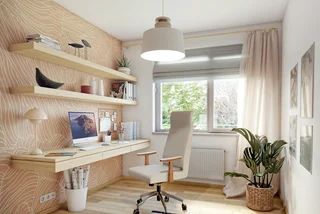Despite the fact that the majority of employees had planned to go back to the office for 2–3 days a week in both 2021 and 2022, actual occupancy rates in corporate offices around Europe currently stand at only 35 percent.
This information comes from a new study conducted by Colliers in collaboration with the workplace occupancy analytics platform Basking.io. The study also compared how long employees spend in the office, which days are the most popular for working from home, and how office spaces are changing to reflect the way we work now.
Most popular days to go into the office
Worldwide, people go into the office the most on Tuesdays and the least on Fridays – when average occupancy is only 17 percent.
Another interesting trend indicated by the study is that the eight-hour office workday is becoming a thing of the past. Employees typically spend 9–12 hours in the office in a single day.
Colliers’ Jana Vlková said Europeans still tend to go to the office more than workers in the U.S. or South America.
Profession, nationality also affected how often people go into the office
Vlková said that reasons for the differences in work-from-the-office frequency can vary: from longer commuting times to the availability of digital infrastructure or to company habits and the degree of individual workstyle preferences in different nations.
Office occupancy rates, for instance, differed by country and tended to be higher in nations where people prefer more personal contact with co-workers. The UK, the Netherlands, Belgium, and France have lower occupancy rates than countries where people prefer more personal contact with colleagues such as Greece, North Macedonia, and Romania.
"The Czech Republic represents a happy medium in this regard," Vlková said.
This is confirmed by data from the Czech-based Association of Business Service Leaders (ABSL) looking at levels of working from home in offices among business and IT services. ABSL found that of employees that work from home, 62 percent do so two to four days a week; 9 percent only one day a week; and 29 percent work from home all week.
A more collaborative space
Despite this reality, 19 percent of companies in Czechia still want to expand their office space. However, according to experts from Colliers, office spaces of the future will place a greater emphasis on spaces designed for collaboration and team meetings.
Corporate offices are also changing, with greater emphasis on spaces for collaboration and team meetings. Before the pandemic, 70 percent of office space was dedicated to individual workplaces and 30 percent to meeting rooms and other spaces.
"Today the ratio is changing with 30 to 40 percent of space now dedicated to individual workplaces and 60 to 70 percent is allocated for team collaboration or relaxation," Vlková said.
Compared to pre-pandemic levels, employee satisfaction has increased due to new office layouts and hybrid working.
Most workers prefer a hybrid week
Office-based employees’ interest in hybrid work arrangements is confirmed by a recent Gallup poll that found only 3 percent of employees in the professional services sector with the ability to work from home said they would prefer to work entirely from the corporate office.
On the other hand, only one in three employees prefers to work entirely from home. Two out of three workers in fields like engineering, consultancy, programming, or finance prefer a hybrid work format.












 Reading time: 2 minutes
Reading time: 2 minutes 




























